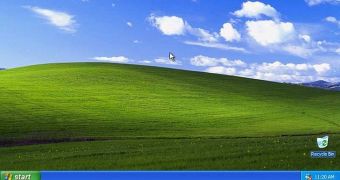Windows XP is no longer receiving updates and security patches from Microsoft and some of the manufacturers out there are very happy with it because this led to increased sales of new PCs in the last few months.
Intel is the best example, as the company recently updated its forecast for this quarter from $12.5 billion (€9.2 billion) to $13.5 billion (€9.9 billion). The reason? Increased sales of new PCs as more users are giving up on Windows XP and moving to new computers running Windows 7 or Windows 8.1.
Michael Goldstein, president and CEO of LAN Infotech, a Dell partner based in Fort Lauderdale, Fla., told CRN in an interview that more users are realizing the risks of staying on Windows XP after end of support, so the transition to a newer operating system is going faster these days.
“We have been seeing a strong demand for desktop replacements as customers are finally coming around and upgrading their Windows XP machines. We accepted the upgrades, but just couldn't tell when we’d see sales take off,” he said. “Since XP users can't upgrade to a more modern version of XP and can't get any more security updates, when big security flaws make news our customers are quickly realizing they have to upgrade.”
And still, that doesn't necessarily mean that everyone is ready to give up on Windows XP.
Third-party statistics published earlier this month show that Windows XP is still installed on 25 percent of the desktop PCs worldwide, despite Microsoft's efforts to show that security risks are getting bigger for those who are yet to upgrade.
Microsoft has also pulled the plug on Security Essentials for Windows XP, so new XP installations are no longer supported by the company's freeware anti-virus solution. Clients running the app at this point will continue to receive updates until June 2015.
When asked why it decided to end support for Windows XP, Microsoft said that it already updated it “longer than any other operating system in our history and already two years longer than the standard ten years of support we normally provide.”
“We support our older operating systems much longer than most other businesses in this industry, but we can’t keep supporting old operating systems and still move forward creating new and better products,” it said.
It's time to move on, Microsoft says with every single occasion, but it appears that only a few users are actually getting this message.

 14 DAY TRIAL //
14 DAY TRIAL //